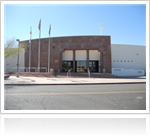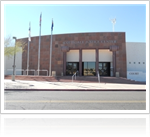
While many DUI charges are classified as misdemeanors in the State of Arizona, there are certain circumstances when DUI charges may be classified as a felony, or 'Aggravated DUI'. If your case was filed in Maricopa County Superior Court, or any other County Superior Court, then it is likely being charged as a felony. Misdemeanor DUI cases are generally filed in City/Municipal Courts or Justice Courts. The primary factors in felony Aggravated DUI charges include:
- Driving on a restricted, suspended or revoked license at the time of the DUI (Class 4 Felony)
- Driving with a minor child (under the age of 15) in the car at the time of the DUI (Class 6 Felony)
- Two prior DUI/DWI/OUI convictions (in any state) within the past 84 months (Class 4 Felony)
- If you are required to equip your vehicle with an ignition interlock device at the time of the DUI (Class 4 Felony)
While misdemeanor DUI charges are not taken lightly in Arizona, Aggravated DUI cases are considerably more serious and as such, result in much harsher penalties. The jail or prison terms follow the statutory requirements for Misdemeanor DUI charges – regular DUI, Extreme DUI and Super Extreme DUI, and with no prior felony convictions, the range for an Aggravated DUI (Class 6 Felony) with a minor child in the car is a minimum of 1 day in jail up to a maximum of 2 years in the department of corrections (prison). Additionally, the court fees and fines are nearly $5,000, license is revoked for 1-year (with possibility for restricted driving), up to 10 years' probation (plus probation fees), alcohol screening and classes (plus cost of screening/classes), community work service, possible SR22 insurance, 1-2 year ignition interlock, depending on BAC level (plus cost to rent device), Victim Impact Panel (MADD), and a felony record (which is forever allegeable). The jail or prison term for an Aggravated DUI (Class 4 Felony)with no prior felony convictions is a minimum of 4 months (which can be reduced to 24 days if eligible for Continuous Alcohol Monitoring Program) and up to a maximum of 3.75 years in the department of corrections. Additional penalties include court fees and fines of nearly $5,000, a 1-year license revocation, probation up to 10-years (plus probation fees), alcohol screening and classes (plus cost of screening/classes), community work service, possible SR22 insurance, 2-years ignition interlock device (plus cost to rent device), Victim Impact Panel (MADD), and a felony record (which is forever allegeable).
Given the serious, costly, and long-term impact of a felony Aggravated DUI conviction, it is critical to seek the advice of experienced DUI counsel before making any decisions in your case. Mr. Buckallew has extensive experience litigating DUI cases, including very serious and complex felony DUI charges, and has a proven track record of successfully resolving countless DUI cases over the course of his career. The Firm handles cases in East Valley Cities, including Scottsdale, Tempe, Gilbert, Mesa, Paradise Valley and Queen Creek, as well as Phoenix, West Valley Cities, throughout Maricopa County and Statewide.
 Arizona DUI & Criminal Defense Lawyer Blog
Arizona DUI & Criminal Defense Lawyer Blog












